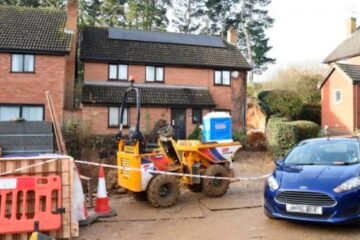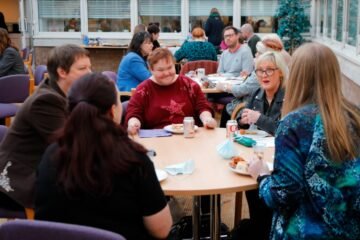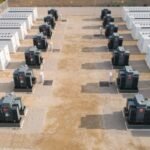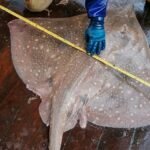Scottish leader faces scrutiny over her government’s handling of the pandemic
Nicola Sturgeon, the former first minister of Scotland, has denied deleting WhatsApp messages that could be relevant to the public inquiry into her government’s response to the Covid-19 pandemic. She said she has “nothing to hide” and is committed to full transparency.
Sturgeon was asked repeatedly by journalists whether she had deleted any messages from the period of the pandemic, but she refused to answer, citing the confidentiality agreement between witnesses and the inquiry. She also rejected suggestions that she governed using WhatsApp and said she was not a member of any WhatsApp groups.
The inquiry, led by former judge Lord Bracadale, is examining how the Scottish Government handled the health crisis, which has claimed more than 11,000 lives in Scotland. It is expected to report its findings by next summer.
WhatsApp messages spark controversy and criticism
The issue of WhatsApp messages came to light last week, when counsel to the inquiry Jamie Dawson QC revealed that “no messages” from within the Scottish Government had been provided to the inquiry. He said this was “surprising” given the volume and content of messages disclosed by the UK Government.
Reports over the weekend said that Sturgeon, along with other senior figures in government at the time of the pandemic, had deleted messages from the period. This raised questions about whether they had complied with their legal duty to preserve evidence for the inquiry.

On Monday, Shona Robison, the deputy first minister, confirmed that at least 14,000 WhatsApp messages would be handed over to the inquiry by November 6, following a legal notice. She said some of them were of a “particularly personal nature” and required a court order before they could be released.
She also published a policy document from November 2021, after the commitment to hold an inquiry was made, that advised government officials to delete “business conversations” in mobile messaging apps “at least monthly” after they had been recorded officially.
Opposition parties accuse Sturgeon of secrecy and evasion
The opposition parties at Holyrood have accused Sturgeon and her government of secrecy and evasion over the deleted messages. They have called for full disclosure and cooperation with the inquiry.
Douglas Ross, the leader of the Scottish Conservatives, said: “The stench of secrecy from this Government is overpowering. It was ridiculous for her to claim she’s committed to transparency while refusing, repeatedly, to confirm whether or not she deleted WhatsApp messages.”
Jackie Baillie, the deputy leader of Scottish Labour, said: “Messages have been destroyed on an industrial scale. It is inconceivable that a former first minister would not understand the importance of that evidence.”
Alex Cole-Hamilton, the leader of the Scottish Liberal Democrats, said: “We may never know if life and death judgments hinged around Nicola Sturgeon’s desire just to be different from Boris Johnson because messages deleted at the very top of the Scottish Government erased the process by which ministers weighed the politics and science behind the decisions required of them.”
Sturgeon defends her record and insists on transparency
Sturgeon has defended her record and insisted that she is fully transparent and accountable to the inquiry. She said she did not manage the Covid-19 response by WhatsApp and that decisions were taken in face-to-face meetings or online calls. She also said she stood up every day and explained the basis of her decisions to the public.
She said: “I have nothing to hide. I am committed to full transparency to this inquiry and to the Scottish inquiry when it takes place. And I am committed to that in the interests of everybody across this country who was affected by Covid.”
She added: “I understand that given the volume and content of some of the messages from the UK Government, there’s an assumption that we all worked like that. I did not work like that.”
Sturgeon also said she would set out how she operated and what she held or did not hold in terms of messages when she appears before the inquiry as a witness. She said she expected to be questioned about her actions and decisions during the pandemic.
“I will be setting out…how I operated, how I worked during the Covid pandemic, what I hold, what I don’t hold and the reasons for that,” she said.


















